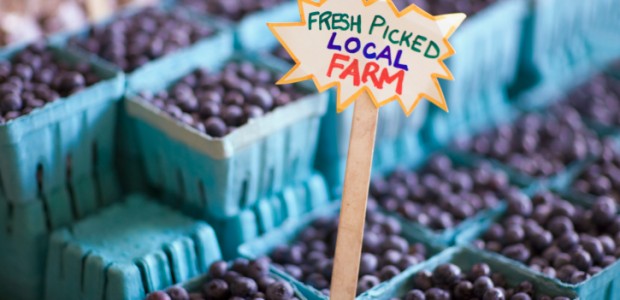Some people have read reports about harmful chemical residues in their foods and worry that they will make their kids sick by feeding them fresh produce. These families may not be able to afford to only buy organic produce. Yet, these parents also know that a diet rich in fresh fruits and veggies is crucial for the health of the whole family. Some parents may feel that they are in a no-win situation when planning the family’s meals and snacks.
However, if you are in this position, there is good news. You can prioritize your spending and still feed your family well. Certain types of fruits and vegetables are more likely to be contaminated with harmful chemicals. These varieties should always be bought from an organic farm. However, other types of fruits and veggies are less likely to be contaminated. Those types can be bought from your traditional supermarket produce department.
Every year for the past few years, the Environmental Working Group has released a list of foods that are most likely to be contaminated by harmful residues. They called these foods “The Dirty Dozen.” Here are the foods that are most dangerous due to elevated pesticide levels. You should buy these foods organically if at all possible.
- Apples–The old saying, “An apple a day keeps the doctor away.” may not apply to conventionally grown apples. The health benefits of this flavonoid-loaded fruit may be outweighed by the poisons that conventional growers must spray to keep bugs at bay.
- Celery–Celery is one of the worst offenders for pesticides. Never buy conventionally grown celery because the pesticide residues are sky-high.
- Bell Peppers–Red and green bell peppers are loaded with antioxidants and Vitamin C. Thankfully, they are easily grown at home in a garden or on a patio in pots if you can’t afford organic peppers.
- Peaches and Nectarines–Because of their thin skins and abundant insect pests, peaches and nectarines are very likely to have residues. Even frozen and canned peaches can be contaminated, so buy organic.
- Strawberries–These soft berries are prone to fungal infections, so commercial growers typically use fungicides on them. Organic varieties may be a bit smaller, but they often have higher levels of antioxidants and greater flavor.
- Grapes–Grapes and raisins are sources of resveratrol, an antioxidant that repairs cell damage. However, choose organic versions to avoid pesticide exposure.
- Spinach, Lettuce, Kale–Leafy greens are a great source of iron, Vitamin K, Vitamin C, and a host of other crucial vitamins and minerals. Buy organic types to get all of the benefits without the poisons of pesticides.
- Cucumbers–Organic cucumbers can provide a cooling burst of sweetness on a hot day and provide plenty of Vitamin K.
- Blueberries–Blueberries have one of the highest levels of cancer-fighting antioxidants of 60 tested varieties of fruits and veggies. Commercial growers typically spray their berries with pesticides, so get your antioxidants safely by buying wild-grown berries.
- Potatoes–Most of the nutrients found in a potato are in the skin and the thin layer of flesh directly beneath the skin. Choose organic varieties to ensure no harmful pesticides in this root vegetable.
- Green Beans–Green beans are great sources of Vitamin C and flavonoids. They are frequently sprayed in commercial fields with pesticides, so organic is a must for this popular veggie.
- Cherry Tomatoes–What would a salad be without a few cherry tomatoes? This popular vegetable is loaded with lycopene and can improve prostate health. Choose organic for the most health benefits.
~April F.
